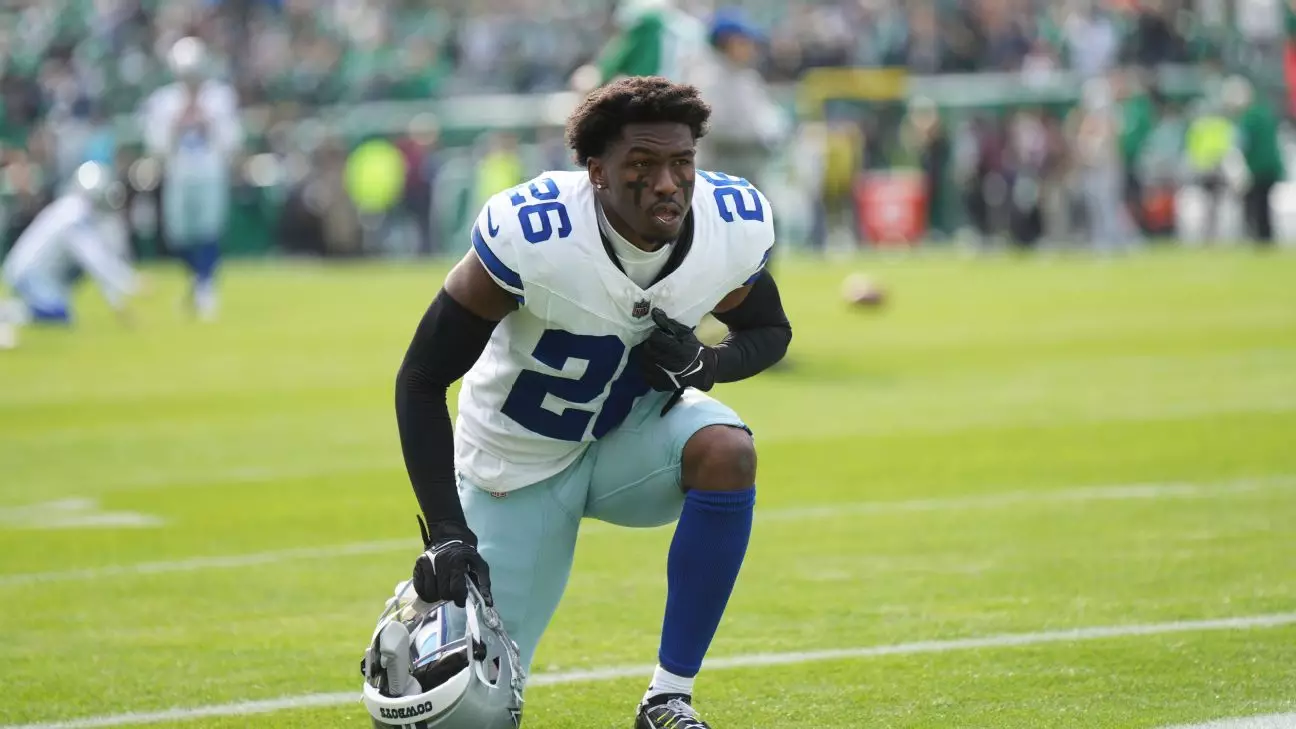In the ever-competitive arena of professional football, the Dallas Cowboys stand at a pivotal crossroads. Emerging from a season filled with promise and the potential for greatness, they face a crucial decision: whether to extend contracts for key players who are not only foundational to their success but also integral to maintaining a vibrant franchise culture. As star pass rusher Micah Parsons, alongside pivotal draft class peers Tyler Smith, Jake Ferguson, and DaRon Bland, enter contract extension conversations, it is clear that proactive decision-making could set the Cowboys up for sustained success.
Cowboys management recently cleared significant cap space—over $55 million—in anticipation of these contract discussions. While many may speculate that this financial maneuvering was aimed at acquiring high-profile free agents, it is essential to recognize that the true opportunity lies within their existing roster. Extensions for Parsons, Smith, Ferguson, and Bland would not only reward their contributions but also strategically position the team for future success while offering financial flexibility.
Building Blocks: The Core of Cowherdom
A deep dive into the Cowboys’ roster illustrates the importance of these players. Tyler Smith, the second-year guard emerging as a Pro Bowl talent, represents a cornerstone for Dallas’s offensive line. With the retirement of stalwart Zack Martin, Smith has an incredible chance to lead a new wave of linemen, instilling the same commitment and excellence that his predecessors exemplified. Smith has demonstrated not just talent but also the desire to forge a legacy as a leader. His focus on maintaining high standards and fostering a winning atmosphere mirrors the Cowboys’ storied history and can galvanize the rest of the team moving forward.
Meanwhile, Jake Ferguson and DaRon Bland offer unique skill sets that enhance the Cowboys’ offensive and defensive dynamics. Ferguson has shown promise as an integral receiving threat, having recorded impressive statistics despite battling injuries that hindered his consistency. With recent seasons marred by health setbacks, his trajectory suggests he is on the cusp of breaking out if he can remain healthy. Similarly, Bland’s performance, highlighted by an astounding nine interceptions and five defensive touchdowns, underscores his capacity to change the game’s momentum. Both players’ potential makes a strong case for early contract extensions and reaffirms the necessity of investing in young talent.
The Perils of Waiting: A Lesson from the Past
Historically, the Cowboys have negotiated extensions ahead of free agency. This has not only solidified team loyalty but has also given the organization a considerable edge in controlling salary cap implications. Icons like Tony Romo and DeMarcus Ware signed lucrative deals before reaching a critical juncture in their careers. Unfortunately, the franchise seems to have veered away from this proactive approach, leading to a more reactive strategy that risks overpaying in the future.
Current examples surrounding the league illustrate the importance of timely contract negotiations. Take the recent case of Houston Texans cornerback Derek Stingley Jr., whose extension reset expectations with an average of $30 million per season. The market for defensive backs is climbing, and with Trevon Diggs having secured a substantial contract recently, Bland’s potential pay-out—in light of his remarkable achievements—is more pressing than ever.
Furthermore, Ferguson’s position as a tight end, coupled with his last season’s inconsistency due to injuries, further complicates matters. The value of tight ends is not keeping pace with wide receiver contracts as stars like Ja’Marr Chase command astounding deals worth over $40 million annually. The Cowboys must thoughtfully assess Ferguson’s projection while acknowledging the potential for his value to increase if they act quickly.
Future Horizons: Navigating the Parsons Negotiation
At the heart of the Cowboys’ roster strategy looms Micah Parsons. The All-Pro pass rusher is a generational talent whose impact goes beyond traditional statistics. Parsons has publicly expressed a desire to stay with the Cowboys long-term, yet his management will inevitably seek a payday that reflects his elite status among defensive players. The nuances of this negotiation will dictate how Dallas manages its salary cap and future assignments. Protecting Parsons with a robust contract not only incentivizes loyalty but also communicates to the rest of the squad that elite contributions are rewarded.
While utilizing the franchise tag remains a fallback strategy for the franchise, it could significantly limit flexibility in signing other key players as Smith, Ferguson, and Bland also seek extensions. Thus, finding a middle ground is essential in ensuring that the team can maintain its superstars while developing emerging talents.
With the upcoming season fast approaching, every decision the Cowboys make will ripple throughout the franchise. Prioritizing extensions for Parsons, Smith, Ferguson, and Bland is not just an operational strategy; it’s a commitment to a future that promises both competitiveness and institutional loyalty. The Cowboys have an opportunity to illustrate that they are not just a storied franchise but a forward-thinking team on the cusp of greatness. The time to act is now.


Leave a Reply